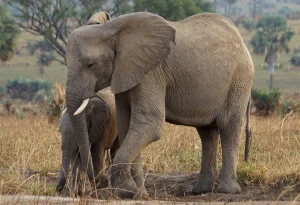A safari is one of the most exciting and educational adventures a family can take together. The opportunity to witness lions in the wild, elephants roaming freely, or hippos wallowing in rivers is nothing short of magical. However, when it comes to bringing children on safari, many parents wonder how old should a child be to go on a safari?
However, the answer is not as simple as a single number. Instead, it depends on several key factors, including the child’s maturity, the type of safari experience, the destination chosen, the length of the trip, and the level of physical activity involved. On one hand, some safaris are perfectly suited for young children, especially those designed with families in mind. On the other hand, more demanding adventures—such as gorilla trekking in Uganda or bush walking in South Africa—require a minimum age due to important safety protocols and conservation regulations. Therefore, determining the right age involves balancing safety, enjoyment, and suitability for the activities planned.
In this comprehensive guide, we’ll explore the ideal age for children to go on a safari, what parents should consider before planning the trip, the types of safaris available for various age groups, and how to prepare your child for the experience of a lifetime.
Why Age Matters When Planning a Safari with Children
Going on a safari is not your typical vacation. It involves early mornings, long drives, exposure to wild animals, and staying in remote lodges where modern comforts may be limited. For children to truly enjoy and benefit from a safari experience, they need to be physically and emotionally prepared.
Here are some reasons why age is an important consideration:
-
Safety: Safaris take place in areas with large, potentially dangerous wildlife. Rules such as staying inside the vehicle, remaining quiet, and listening to guides must be followed strictly.
-
Patience: Game drives can last several hours. Children who struggle to sit still or remain quiet may find it challenging.
-
Appreciation: Older children are more likely to understand and appreciate the significance of seeing animals in their natural habitat, making the experience more meaningful.
-
Physical Demands: Some safaris include walking tours, boat trips, or hikes that require a certain level of physical ability.
What Is the Ideal Minimum Age for a Safari?
While there is no universal minimum age for all safaris, most experts and tour operators recommend age 6 and above for traditional game drives in places like Uganda, Kenya, Tanzania, or South Africa.
For more specialized experiences, the minimum age requirements are usually as follows:
-
Gorilla trekking (Uganda and Rwanda): 15 years
-
Chimpanzee tracking: 12 to 15 years, depending on the park
-
Walking safaris: 12 years or older
-
Standard game drives: No strict age limit, but typically recommended for children aged 6 and above
-
Boat safaris: Usually safe for children aged 4 and up, provided safety equipment is available
Some family-focused safari lodges will accept younger children, even toddlers, especially in fenced or malaria-free reserves. However, these experiences are typically more structured and may include shorter, private drives and on-site wildlife experiences rather than full-day wilderness exploration.
What Safari Types Are Best for Young Children?
If you’re planning a safari with children under 10 years old, it’s essential to choose the right type of safari. Here are the most suitable options:
1. Private Safaris:
These are ideal for families as you can control the schedule, take breaks when needed, and adapt the itinerary to your child’s needs. A private guide can also tailor explanations and sightings to make them fun and educational.
2. Safari Lodges with On-Site Game Viewing:
Some lodges are located within private reserves where wildlife frequently roams nearby. You can observe animals from your veranda or a lookout point, which means less time in vehicles.
3. Short Game Drives:
Instead of committing to long game drives, opt for 2–3 hour outings. Many parks offer morning and afternoon options to suit children’s energy levels.
4. Boat Safaris:
These are typically gentle, calm, and very exciting for kids. Animals like crocodiles, hippos, and water birds can often be viewed up close without the need for long drives.
5. Malaria-Free Safaris:
For younger children, choosing malaria-free destinations can reduce the health-related stress. While Uganda has malaria, precautions such as medication, nets, and repellents can make it manageable. Alternatively, malaria-free zones in southern Africa may be worth considering for families with toddlers.
How Can You Tell If Your Child Is Ready for a Safari?
Beyond age, consider your child’s:
-
Maturity: Can they stay quiet and follow instructions? This is vital around wildlife.
-
Interest in Animals and Nature: A child who already loves documentaries, animals, and the outdoors will likely engage more.
-
Attention Span: If your child gets bored easily, long game drives may not be enjoyable.
-
Health and Endurance: Safaris can be tiring. Make sure your child can handle early mornings, heat, and possibly long travel times between locations.
-
Temperament: If your child is easily frightened or overwhelmed, you may need a more controlled environment such as a wildlife sanctuary or fenced lodge.
Every child is different. Some 5-year-olds can sit patiently and quietly during a lion sighting, while some 10-year-olds may find the experience frustrating. Use your knowledge of your child to decide what is best.
What Age-Based Safari Planning Tips Should Parents Know?
When planning a safari based on your child’s age, consider the following tailored recommendations:
For Toddlers (Ages 0–4):
-
Choose a family-friendly lodge in a private game reserve or wildlife ranch
-
Avoid long drives and remote locations
-
Bring familiar food and toys
-
Have a flexible, relaxed itinerary
-
Consider alternative wildlife experiences like zoos or animal sanctuaries
For Young Children (Ages 5–9):
-
Ideal age to introduce safaris with short game drives
-
Bring binoculars, wildlife books, and checklists to keep them engaged
-
Avoid walking safaris and gorilla trekking
-
Opt for lodges with activities for kids
-
Choose parks that offer good infrastructure and easy access
For Tweens and Teens (Ages 10–17):
-
Can handle longer drives and more rugged environments
-
Great age for chimpanzee tracking and bush walks
-
More capable of understanding conservation and ecological issues
-
Consider adding cultural tours and educational components
-
Ready for more adventurous safari options such as canoeing or cycling safaris
How Can You Make a Safari Child Friendly?
Even if you have chosen a destination that allows children of your child’s age, the experience can still be made more engaging and comfortable:
-
Create a Safari Journal: Let children document what they see, sketch animals, or write short reflections.
-
Use Animal Spotting Checklists: Turn the game drive into a challenge to find “the Big Five” or local bird species.
-
Provide Kid-Friendly Gear: Binoculars, hats, water bottles, and insect repellent sprays in fun packaging can add excitement.
-
Build in Downtime: Don’t overschedule. Allow for rest, play, and naps, especially for younger children.
-
Include Cultural Interactions: Visits to local villages, schools, or craft markets can add variety and depth to the experience.
-
Prepare with Documentaries or Books: Watching wildlife documentaries or reading age-appropriate books before the trip builds anticipation and understanding.
What Are the Legal Age Requirements for Safari Activities?
Many countries in Africa have set legal minimum ages for particular safari experiences to ensure safety and preserve wildlife.
-
Uganda: Gorilla trekking is 15+, chimpanzee tracking 12+, game drives have no legal age but most lodges advise 6+
-
Tanzania and Kenya: Generally flexible with game drives, but walking safaris and some lodges require 12+
-
South Africa: Offers malaria-free reserves for families; some private reserves only allow children 6+ on vehicles
-
Botswana and Zambia: Often more exclusive and remote; many camps restrict participation to children over 12 or 16
Always confirm with your tour operator or lodge as rules may vary depending on specific locations and experiences.
What Is the Best Age for a Child to Go on Safari?
The best age for a child to go on a safari depends on multiple factors, but most families find that age 6 and above is ideal for traditional safari experiences. At this age, children are old enough to follow safety rules, appreciate the animals, and stay engaged for a few hours at a time.
For more advanced or physical safari activities, such as gorilla trekking, walking safaris, or chimpanzee tracking, ages 12 to 15 are typically required and appropriate.
Ultimately, what matters most is your child’s individual personality, interests, and temperament. With the right planning, even young children can have a safe and thrilling introduction to the wild wonders of Africa.
A safari can be more than just a holiday—it can be a life-changing experience, igniting curiosity, compassion, and a love for conservation in the next generation. If your child is ready, the safari world is ready to welcome them.
Choose wisely, plan carefully, and prepare to create family memories that will last a lifetime.




